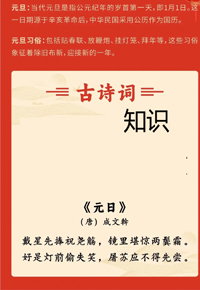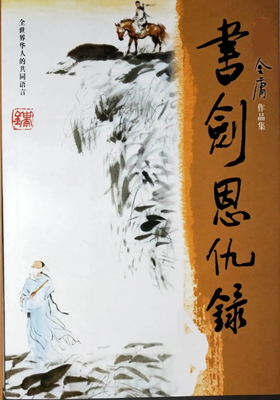Let us try to say it.
It is necessary that society should look at these things, because it is itself which creates them.
He was, as we have said, an ignorant man, but he was not a fool. The light of nature was ignited in him. Unhappiness, which also possesses a clearness of vision of its own, augmented the small amount of daylight which existed in this mind. Beneath the cudgel, beneath the chain, in the cell, in hardship, beneath the burning sun of the galleys, upon the plank bed of the convict, he withdrew into his own consciousness and meditated.
He constituted himself the tribunal.
He began by putting himself on trial.
He recognized the fact that he was not an innocent man unjustly punished. He admitted that he had committed an extreme and blameworthy act; that that loaf of bread would probably not have been refused to him had he asked for it; that, in any case, it would have been better to wait until he could get it through compassion or through work; that it is not an unanswerable argument to say, "Can one wait when one is hungry?" That, in the first place, it is very rare for any one to die of hunger, literally; and next, that, fortunately or unfortunately, man is so constituted that he can suffer long and much, both morally and physically, without dying; that it is therefore necessary to have patience; that that would even have been better for those poor little children; that it had been an act of madness for him, a miserable, unfortunate wretch, to take society at large violently by the collar, and to imagine that one can escape from misery through theft; that that is in any case a poor door through which to escape from misery through which infamy enters; in short, that he was in the wrong.
Then he asked himself--
Whether he had been the only one in fault in his fatal history. Whether it was not a serious thing, that he, a laborer, out of work, that he, an industrious man, should have lacked bread. And whether, the fault once committed and confessed, the chastisement had not been ferocious and disproportioned. Whether there had not been more abuse on the part of the law, in respect to the penalty, than there had been on the part of the culprit in respect to his fault. Whether there had not been an excess of weights in one balance of the scale, in the one which contains expiation. Whether the over-weight of the penalty was not equivalent to the annihilation of the crime, and did not result in reversing the situation, of replacing the fault of the delinquent by the fault of the repression, of converting the guilty man into the victim, and the debtor into the creditor, and of ranging the law definitely on the side of the man who had violated it.
Whether this penalty, complicated by successive aggravations for attempts at escape, had not ended in becoming a sort of outrage perpetrated by the stronger upon the feebler, a crime of society against the individual, a crime which was being committed afresh every day, a crime which had lasted nineteen years.
He asked himself whether human society could have the right to force its members to suffer equally in one case for its own unreasonable lack of foresight, and in the other case for its pitiless foresight; and to seize a poor man forever between a defect and an excess, a default of work and an excess of punishment.
Whether it was not outrageous for society to treat thus precisely those of its members who were the least well endowed in the division of goods made by chance, and consequently the most deserving of consideration.
These questions put and answered, he judged society and condemned it.
He condemned it to his hatred.
He made it responsible for the fate which he was suffering, and he said to himself that it might be that one day he should not hesitate to call it to account. He declared to himself that there was no equilibrium between the harm which he had caused and the harm which was being done to him; he finally arrived at the conclusion that his punishment was not, in truth, unjust, but that it most assuredly was iniquitous.
Anger may be both foolish and absurd; one can be irritated wrongfully; one is exasperated only when there is some show of right on one's side at bottom. Jean Valjean felt himself exasperated.
And besides, human society had done him nothing but harm; he had never seen anything of it save that angry face which it calls Justice, and which it shows to those whom it strikes. Men had only touched him to bruise him. Every contact with them had been a blow. Never, since his infancy, since the days of his mother, of his sister, had he ever encountered a friendly word and a kindly glance. From suffering to suffering, he had gradually arrived at the conviction that life is a war; and that in this war he was the conquered. He had no other weapon than his hate. He resolved to whet it in the galleys and to bear it away with him when he departed.
There was at Toulon a school for the convicts, kept by the Ignorantin friars, where the most necessary branches were taught to those of the unfortunate men who had a mind for them. He was of the number who had a mind. He went to school at the age of forty, and learned to read, to write, to cipher. He felt that to fortify his intelligence was to fortify his hate. In certain cases, education and enlightenment can serve to eke out evil.
This is a sad thing to say; after having judged society, which had caused his unhappiness, he judged Providence, which had made society, and he condemned it also.
Thus during nineteen years of torture and slavery, this soul mounted and at the same time fell. Light entered it on one side, and darkness on the other.
Jean Valjean had not, as we have seen, an evil nature. He was still good when he arrived at the galleys. He there condemned society, and felt that he was becoming wicked; he there condemned Providence, and was conscious that he was becoming impious.
It is difficult not to indulge in meditation at this point.
Does human nature thus change utterly and from top to bottom? Can the man created good by God be rendered wicked by man? Can the soul be completely made over by fate, and become evil, fate being evil? Can the heart become misshapen and contract incurable deformities and infirmities under the oppression of a disproportionate unhappiness, as the vertebral column beneath too low a vault? Is there not in every human soul, was there not in the soul of Jean Valjean in particular, a first spark, a divine element, incorruptible in this world, immortal in the other, which good can develop, fan, ignite, and make to glow with splendor, and which evil can never wholly extinguish?
Grave and obscure questions, to the last of which every physiologist would probably have responded no, and that without hesitation, had he beheld at Toulon, during the hours of repose, which were for Jean Valjean hours of revery, this gloomy galley-slave, seated with folded arms upon the bar of some capstan, with the end of his chain thrust into his pocket to prevent its dragging, serious, silent, and thoughtful, a pariah of the laws which regarded the man with wrath, condemned by civilization, and regarding heaven with severity.
Certainly,--and we make no attempt to dissimulate the fact,-- the observing physiologist would have beheld an irremediable misery; he would, perchance, have pitied this sick man, of the law's making; but he would not have even essayed any treatment; he would have turned aside his gaze from the caverns of which he would have caught a glimpse within this soul, and, like Dante at the portals of hell, he would have effaced from this existence the word which the finger of God has, nevertheless, inscribed upon the brow of every man,--hope.
Was this state of his soul, which we have attempted to analyze, as perfectly clear to Jean Valjean as we have tried to render it for those who read us? Did Jean Valjean distinctly perceive, after their formation, and had he seen distinctly during the process of their formation, all the elements of which his moral misery was composed? Had this rough and unlettered man gathered a perfectly clear perception of the succession of ideas through which he had, by degrees, mounted and descended to the lugubrious aspects which had, for so many years, formed the inner horizon of his spirit? Was he conscious of all that passed within him, and of all that was working there? That is something which we do not presume to state; it is something which we do not even believe. There was too much ignorance in Jean Valjean, even after his misfortune, to prevent much vagueness from still lingering there. At times he did not rightly know himself what he felt. Jean Valjean was in the shadows; he suffered in the shadows; he hated in the shadows; one might have said that he hated in advance of himself. He dwelt habitually in this shadow, feeling his way like a blind man and a dreamer. Only, at intervals, there suddenly came to him, from without and from within, an access of wrath, a surcharge of suffering, a livid and rapid flash which illuminated his whole soul, and caused to appear abruptly all around him, in front, behind, amid the gleams of a frightful light, the hideous precipices and the sombre perspective of his destiny.
The flash passed, the night closed in again; and where was he? He no longer knew. The peculiarity of pains of this nature, in which that which is pitiless--that is to say, that which is brutalizing--predominates, is to transform a man, little by little, by a sort of stupid transfiguration, into a wild beast; sometimes into a ferocious beast.
Jean Valjean's successive and obstinate attempts at escape would alone suffice to prove this strange working of the law upon the human soul. Jean Valjean would have renewed these attempts, utterly useless and foolish as they were, as often as the opportunity had presented itself, without reflecting for an instant on the result, nor on the experiences which he had already gone through. He escaped impetuously, like the wolf who finds his cage open. Instinct said to him, "Flee!" Reason would have said, "Remain!" But in the presence of so violent a temptation, reason vanished; nothing remained but instinct. The beast alone acted. When he was recaptured, the fresh severities inflicted on him only served to render him still more wild.
One detail, which we must not omit, is that he possessed a physical strength which was not approached by a single one of the denizens of the galleys. At work, at paying out a cable or winding up a capstan, Jean Valjean was worth four men. He sometimes lifted and sustained enormous weights on his back; and when the occasion demanded it, he replaced that implement which is called a jack-screw, and was formerly called orgueil [pride], whence, we may remark in passing, is derived the name of the Rue Montorgueil, near the Halles [Fishmarket] in Paris. His comrades had nicknamed him Jean the Jack-screw. Once, when they were repairing the balcony of the town-hall at Toulon, one of those admirable caryatids of Puget, which support the balcony, became loosened, and was on the point of falling. Jean Valjean, who was present, supported the caryatid with his shoulder, and gave the workmen time to arrive.
His suppleness even exceeded his strength. Certain convicts who were forever dreaming of escape, ended by making a veritable science of force and skill combined. It is the science of muscles. An entire system of mysterious statics is daily practised by prisoners, men who are forever envious of the flies and birds. To climb a vertical surface, and to find points of support where hardly a projection was visible, was play to Jean Valjean. An angle of the wall being given, with the tension of his back and legs, with his elbows and his heels fitted into the unevenness of the stone, he raised himself as if by magic to the third story. He sometimes mounted thus even to the roof of the galley prison.
He spoke but little. He laughed not at all. An excessive emotion was required to wring from him, once or twice a year, that lugubrious laugh of the convict, which is like the echo of the laugh of a demon. To all appearance, he seemed to be occupied in the constant contemplation of something terrible.
He was absorbed, in fact.
Athwart the unhealthy perceptions of an incomplete nature and a crushed intelligence, he was confusedly conscious that some monstrous thing was resting on him. In that obscure and wan shadow within which he crawled, each time that he turned his neck and essayed to raise his glance, he perceived with terror, mingled with rage, a sort of frightful accumulation of things, collecting and mounting above him, beyond the range of his vision,-- laws, prejudices, men, and deeds,--whose outlines escaped him, whose mass terrified him, and which was nothing else than that prodigious pyramid which we call civilization. He distinguished, here and there in that swarming and formless mass, now near him, now afar off and on inaccessible table-lands, some group, some detail, vividly illuminated; here the galley-sergeant and his cudgel; there the gendarme and his sword; yonder the mitred archbishop; away at the top, like a sort of sun, the Emperor, crowned and dazzling. It seemed to him that these distant splendors, far from dissipating his night, rendered it more funereal and more black. All this-- laws, prejudices, deeds, men, things--went and came above him, over his head, in accordance with the complicated and mysterious movement which God imparts to civilization, walking over him and crushing him with I know not what peacefulness in its cruelty and inexorability in its indifference. Souls which have fallen to the bottom of all possible misfortune, unhappy men lost in the lowest of those limbos at which no one any longer looks, the reproved of the law, feel the whole weight of this human society, so formidable for him who is without, so frightful for him who is beneath, resting upon their heads.
In this situation Jean Valjean meditated; and what could be the nature of his meditation?
If the grain of millet beneath the millstone had thoughts, it would, doubtless, think that same thing which Jean Valjean thought.
All these things, realities full of spectres, phantasmagories full of realities, had eventually created for him a sort of interior state which is almost indescribable.
At times, amid his convict toil, he paused. He fell to thinking. His reason, at one and the same time riper and more troubled than of yore, rose in revolt. Everything which had happened to him seemed to him absurd; everything that surrounded him seemed to him impossible. He said to himself, "It is a dream." He gazed at the galley-sergeant standing a few paces from him; the galley-sergeant seemed a phantom to him. All of a sudden the phantom dealt him a blow with his cudgel.
Visible nature hardly existed for him. It would almost be true to say that there existed for Jean Valjean neither sun, nor fine summer days, nor radiant sky, nor fresh April dawns. I know not what vent-hole daylight habitually illumined his soul.
To sum up, in conclusion, that which can be summed up and translated into positive results in all that we have just pointed out, we will confine ourselves to the statement that, in the course of nineteen years, Jean Valjean, the inoffensive tree-pruner of Faverolles, the formidable convict of Toulon, had become capable, thanks to the manner in which the galleys had moulded him, of two sorts of evil action: firstly, of evil action which was rapid, unpremeditated, dashing, entirely instinctive, in the nature of reprisals for the evil which he had undergone; secondly, of evil action which was serious, grave, consciously argued out and premeditated, with the false ideas which such a misfortune can furnish. His deliberate deeds passed through three successive phases, which natures of a certain stamp can alone traverse,--reasoning, will, perseverance. He had for moving causes his habitual wrath, bitterness of soul, a profound sense of indignities suffered, the reaction even against the good, the innocent, and the just, if there are any such. The point of departure, like the point of arrival, for all his thoughts, was hatred of human law; that hatred which, if it be not arrested in its development by some providential incident, becomes, within a given time, the hatred of society, then the hatred of the human race, then the hatred of creation, and which manifests itself by a vague, incessant, and brutal desire to do harm to some living being, no matter whom. It will be perceived that it was not without reason that Jean Valjean's passport described him as a very dangerous man.
From year to year this soul had dried away slowly, but with fatal sureness. When the heart is dry, the eye is dry. On his departure from the galleys it had been nineteen years since he had shed a tear.
让我们试述一下。
社会必须正视这些事,因为这些事是它自己制造出来的。
我们已经说过,冉阿让只是个无知识的人,并不是个愚蠢的人,他心里生来就燃着性灵的光。愁苦(愁苦也有它的光)更增加了他心里的那一点微光。他终日受着棍棒、鞭笞、镣铐、禁闭、疲乏之苦,受着狱中烈日的折磨,睡在囚犯的木板库上他扪心自问,反躬自省。
他自己组织法庭。
他开始审问自己。
他承认自己不是一个无罪的人,受的处分也没有过分。他承认自己犯了一种应受指摘的鲁莽的行为;假使当初他肯向人乞讨那块面包,人家也许不会不给;无论给与不给,他总应当从别人的哀怜或自己的工作中去等待那块面包;有些人说肚子饿了也能等待么?这并不是一种无可非难的理由;真正饿死的事根本就很少见到;并且无论是幸或不幸,人类生来在肉体上和精神上总是能长期受苦、多方受苦而不至于送命的;所以应当忍耐;即使是为那些可怜的孩子们着想,那样做也比较妥当些;象他那样一个不幸的贱人也敢挺身和整个社会搏斗,还自以为依靠偷窃,就可以解除困难,那完全是一种疯狂举动;无论怎样,如果你通过一道门能脱离穷困,但同时又落入不名誉的境地,那样的门总还是一扇坏门;总之,他错了。
随后他又问自己:
在他这次走上绝路的过程中,他是否是唯一有过失的人?愿意工作,但缺少工作,愿意劳动,而又缺少面包,首先这能不能不算是件严重的事呢?后来,犯了过失,并且招认了,处罚又是否苛刻过分了呢?法律在处罚方面所犯的错误,是否比犯人在犯罪方面所犯的错误更严重呢?天平的两端,在处罚那端的砝码是否太重了一些呢?加重处罚绝不能消除过失;加重处罚的结果并不能扭转情势,并不能以惩罚者的过失代替犯罪者的过失,也并不能使犯罪的人转为受损害的人,使债务人转为债权人,使侵犯人权的人受到人权的保障,这种看法是否正确呢?企图越狱一次,便加重处罚一次,这种作法的结果,是否构成强者对弱者的谋害,是否构成社会侵犯个人的罪行,并使这种罪行日日都在重犯,一直延续到十九年之久呢?
他再问自己:人类社会是否有权使它的成员在某种情况下接受它那种无理的不关心态度,而在另一种情况下又同样接受它那种无情的不放心态度,并使一个穷苦的人永远陷入一种不是缺乏(工作的缺乏)就是过量(刑罚的过量)的苦海中呢?贫富的形成往往由于机会,在社会的成员中,分得财富最少的人也正是最需要照顾的人,而社会对他们恰又苛求最甚,这样是否合乎情理呢?
他提出这些问题,并作出结论以后,他便开始审判社会,并且判了它的罪。
他凭心中的愤怒判了它的罪。
他认为社会对他的遭遇是应当负责的,他下定决心,将来总有一天,他要和它算账。他宣称他自己对别人造成的损失和别人对他造成的损失,两相比较,太不平衡,他最后的结论是他所受的处罚实际上并不是不公允,而肯定是不平等的。
盛怒可能是疯狂和妄诞的,发怒有时也会发错的,但是,人,如果不是在某一方面确有理由,是不会愤慨的。冉阿让觉得自己在愤慨了。
再说,人类社会所加于他的只是残害。他所看到的社会,历来只是它摆在它的打击对象面前自称为正义的那副怒容。世人和他接触,无非是为了要达到迫害他的目的。他和他们接触,每次都受到打击。从他的幼年,从失去母亲、失去姐姐以来,他从来没有听到过一句友好的言语,也从没有见过一次和善的嘴脸。由痛苦到痛苦,他逐渐得出了一种结论:人生即战争,并且在这场战争里,他是一名败兵。他除了仇恨以外没有其他武器。于是他下定决心,要在监牢里磨练他这武器,并带着它出狱。
有些无知的教士在土伦办了一所囚犯学校,把一些必要的课程教给那些不幸人中的有毅力者。他就是那些有毅力者中的一个。他四十岁进学校,学习了读,写,算。他感到提高他的知识,也就是加强他的仇恨。在某种情况下,教育和智力都是可以起济恶的作用的。
有件事说来很可惜,他在审判了造成他的不幸的社会以后,他接着又审判创造社会的上帝。
他也定了上帝的罪。
在那十九年的苦刑和奴役中,这个人的心是一面上升,一面也堕落了。他一面醒悟,一面糊涂。
我们已经知道,冉阿让并不是一个生性恶劣的人。初进监牢时他还是个好人。他在监牢里判了社会的罪后觉得自己的心狠起来了,在判了上帝的罪后他觉得自己成了天不怕地不怕的人了。
我们在这里不能不仔细想想。
人的性情真能那样彻头彻尾完全改变吗?人由上帝创造,生而性善,能通过人力使他性恶吗?灵魂能不能由于恶劣命运的影响彻底转成恶劣的呢?人心难道也能象矮屋下的背脊一样,因痛苦压迫过甚而蜷屈萎缩变为畸形丑态,造成各种不可救药的残废吗?在每个人的心里,特别是在冉阿让的心里,难道没有一点原始的火星,一种来自上帝的素质,在人间不朽,在天上不灭,可以因善而发扬、鼓舞、光大、昌炽,发为奇观异彩,并且永远也不会完全被恶扑灭吗?
这是一些严重而深奥的问题,任何一个生理学家,他如果在土伦看见过这个苦役犯叉着两条胳膊,坐在绞盘的铁杆上休息(休息也就是冉阿让思前想后的时刻),链头纳在衣袋里,以免拖曳,神情颓丧、严肃、沉默、若有所思;他如果看见过这个被法律抛弃的贱人经常以愤怒的眼光注视着所有的人,他如果看见过这个被文明排斥了的罪犯经常以严厉的颜色仰望天空,他也许会不假思索地对上面那些问题中最后的一个,回答说:“没有。”
当然,我们也并不想隐瞒,这位作为观察者的生理学家也许会在这种场合,看出一种无可挽救的惨局,他也许会替那个被法律伤害了的人叫屈,可是他却连医治的方法也没有想过,他也许会掉转头,不望那个人心上的伤口,他并且会象那个掉头不望地狱门的但丁,把上帝写在每个人前额上的“希望”二字从这个人的生命中拭去。
他的思想情况,我们已试着分析过了,冉阿让本人对自己的思想情况,是否和我们替本书读者试作的分析一样明白呢?构成冉阿让精神痛苦的那一切因素,在形成以后,冉阿让是否看得清楚呢?在它们一一形成的过程中,他又是否看清楚过呢?他的思想是层层发展的,他日甚一日地被困在许多愁惨的景象中颠来倒去,多年以来,他的精神,就始终被局限在那些景象的范围以内,粗鲁不文的他对这种思想的发展层次是否完全了解呢?他对自己思想的起伏波动是否十分明确呢?那是我们不敢肯定的,也是我们不敢相信的。冉阿让太没有知识了,他虽然受了那么多的痛苦,但对这些事,却仍是迷迷糊糊的,有时,他甚至还不知道他所感受的究竟是什么。冉阿让落在黑暗里,他便在黑暗里吃苦,他便在黑暗里愤恨,我们可以说,他无往而不恨。他经常生活在暗无天日的环境中,如同一个盲人或梦游者一样瞎摸瞎撞。不过,在某些时候,他也会,由于内因或外因,忽然感到一股怨气的突袭,一阵异乎寻常的苦痛,他会感到突然出现一道惨淡的、一闪即逝的光,照彻他的整个心灵,同时也使他命运中的种种险恶的深渊和悲惨的远景,在那片凶光的照射下一齐出现在他的前后左右。
闪光过后仍旧是黑夜沉沉,他在什么地方?他又莫名其妙了。
那种刑罚的最不人道,也就是说,最足以戕贼人的智慧的地方,就是它特别能使人经过一种慢性的毒害逐渐化为野兽,有时还化为猛兽。冉阿让屡次执拗不变地图谋越狱,已足够证明法律在人心上所起的那种特殊作用。冉阿让的那种计划完全是无济于事的,愚蠢的,但是只要能得到机会,他总要试一试,绝不想到它的后果,也不想到既得的经验。他象一头狼,看见笼门开了,总要慌忙出逃。本能向他说:“快逃!”理智却会向他说:“待下!”但是面对着那样强烈的引诱,他的理智终于消失了,他有的只是本能。在那里活动着的只是兽性。他在重新被捕以后受到的新处罚,又足以使他更加惊惶失措。
有一件我们不应当忽略的小事,就是他体质强壮,苦役牢里的那些人都比不上他。服劳役时,扭铁索,推绞盘,冉阿让抵得上四个人。他的手举得起、背也能够扛得动非常重大的东西。有时他可以代替一个千斤顶,千斤顶在从前叫做“骄子”,巴黎菜市场附近的那条骄子山街,我们附带说一句,便是以此得名的。他的伙伴们替他起了个浑名,叫冉千斤。一次,土伦市政厅正修理阳台,阳台下面有许多彼惹雕的人形柱,美丽可喜,其中一根脱了榫,几乎倒下来。当时冉阿让正在那里,他居然用肩头撑住了那根柱子等着其余的工人来修理。
他身体的轻捷比他的力气更可观。有些囚徒终年梦想潜逃,于是他们把巧和力结合起来,形成一种真正的科学。那些无时不羡慕飞虫飞鸟的囚徒,每日都练习一种神奇的巧技。冉阿让的特长便是能直登陡壁,在不易发现的凸处找出着力的地方。他在墙角里把肘弯和脚跟靠紧石块上的不平处,便能利用背部和腿弯的伸张力,妖魔似的升到四楼。有时,他还用那种方法直上监狱的房顶。
他很少说话。他从不笑。必得有一种外来的刺激才能使他发出一种象是魔鬼笑声的回音的苦笑,那也是一年难得一两次的事。看他那神气,仿佛随时在留心瞧着一种骇人的东西。
他的确是一心一意在想什么事的样子。
他的禀赋既不完全,智力又受了摧残,通过他那种不健全的辨别能力,他隐约感到有一种怪物附在他身上。他在那种阴暗、惨白、半明不暗的地方过着非人的生活,他每次转过头颈,想往上看时,便又恐怖又愤怒地看见在自己头上,层层叠叠地有一堆大得可怕的东西,法律、偏见、人和事,堆积如山,直到望不见的高度,崇危峻险,令人心悸,它的形状不是他所能知道的,它的体积使他心胆俱裂,这并不是旁的东西,只是那座不可思议的金字塔,我们所谓的文明。这儿那儿,在那堆蠕蠕欲动、形状畸异、忽远忽近的东西上面和一些高不可攀的高原上面,他看见一群群的人,被强烈的光线照得须眉毕现,这儿是携带棍棒的狱卒,手持钢刀的警察,那边是戴着高冠的总主教,最高处,一片圆光的中央,却是戴着冠冕、耀人眼睛的帝王。远处的那些奇观异彩似乎不但不能惊醒他的沉梦,反而使他更加悲伤,更加惶惑。举凡法律、偏见、物体、人和事,都按上帝在文明方面所指定的神秘复杂的动态,在他的头上来来去去,用一种凶残却又平和、安详却又苛刻、无可言状的态度在践踏他,蹂躏他。所有沉在恶运底下、陷在无人怜恤的十八层地狱里面、被法律所摈弃的人们,觉得这个社会的全部重量都压在他们的头上,这种社会对处在它外面的人是多么可怕,对处在它下面的人是多么可怕。
冉阿让在这种情况下,东想西想,但是他的思想是怎样一种性质的呢?
假使磨盘底下的黍粒有思维的能力,它所想的也许就是冉阿让所想的了。
结果,那种充满了鬼影的现实和充满了现实的鬼域替他构成了一种几乎无可言喻的内心状况。
有时,他正在干着牢里的工作,会忽然停着不动,细想起来。他的那种比以前更加成熟、但也更加混乱的理性起来反抗了。他觉得他所遭受的一切都是不合理的。环绕他的一切都是不近人情的。他常对自己说这是一场梦,他望着那个站在他几步以外的狱卒,会觉得那是一个鬼,那个鬼突然给他吃了一棍。
对他来说,这个历历可见的自然界是若有若无的。我们几乎可以说,对冉阿让,无所谓太阳,无所谓春秋佳日,无所谓晴空,无所谓四月天的清凉晓色。我不知道是怎样一种黯淡的光经常照着他的心。
最后,如果我们要把我们以上所谈的一切,择其可以总括的总括起来,指出一个明确的结果的话,我们只能说,冉阿让,法维洛勒的一个安分守己的修树枝工人,土伦的一个强顽的囚犯,由于监狱潜移默化的作用,十九年来已有能力做出两种坏行为:第一种坏行为是急切的、不假思索的、轻躁的、完全出自本能的,是对他所受痛苦的反击;第二种坏行为是阴沉的、持重的、平心静气考虑过的、用他从痛苦中得来的那种错误观念深思熟虑过的。他的打算经常通过三个连续的层次:思考,决心,固执;只有某种性格的人才会走上这条路。起因是由于一贯愤慨,心灵的苦闷,由于受虐待而引起的深刻的恶感、对人的反抗,包括对善良、无辜、公正的人的反抗,假如世上真有这几种人的话。他一切思想的出发点和目的全是对人类法律的仇恨;那种仇恨,在它发展的过程中,如果得不到某种神智来加以制止,就可以在一定的时刻变成对社会的仇恨,再变成对人类的仇恨,再变成对造物的仇恨,最后变成一种无目标、无止境、凶狠残暴的为害欲,不问是谁,逢人便害。我们知道,那张护照称冉阿让“为人异常险狠”,不是没有理由的。
年复一年,这个人的心慢慢地、但是无可挽救地越变越硬了。他的心一硬,他的眼泪也就干了。直到他出狱的那天,十九年中,他没有流过一滴泪。







